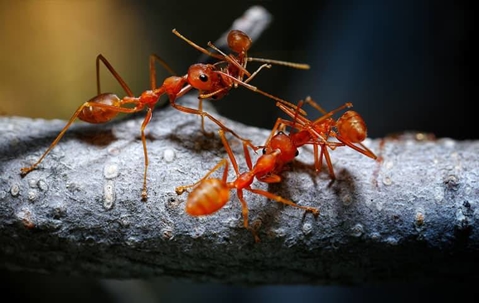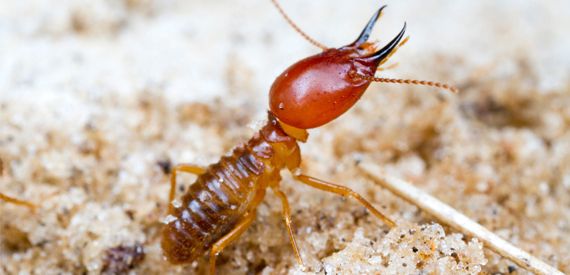Professional Termite Control Services: Protect Your Home from Termite Damage
Professional Termite Control Services: Protect Your Home from Termite Damage
Blog Article
Environmental Impact of Pest Control: Harmonizing Efficiency With Sustainability
The environmental influence of bug control is an essential issue that requires a delicate balance in between achieving effectiveness in making certain and taking care of pests sustainability of our ecosystems. From the use of damaging chemicals that leak right into our soil and water to the unintentional repercussions on non-target types, the repercussions of standard parasite control techniques are far-ranging.
Unsafe Chemicals in Insect Control
The use of hazardous chemicals in insect control presents substantial environmental and health risks that warrant mindful factor to consider and reduction approaches. Insecticides, chemicals, and herbicides are commonly used to eradicate parasites, yet their widespread application can lead to unintended consequences. These chemicals can pollute dirt, water resources, and the air, impacting not only the targeted pests but also advantageous insects, wild animals, and humans.

To attend to these threats, incorporated parasite monitoring (IPM) techniques are being promoted as an extra lasting choice. IPM involves a mix of approaches such as organic control, habitat adjustment, and the targeted use chemicals as a last resort (ant control thomaville nc). By adopting a holistic approach to pest control, we can decrease the environmental and health influences connected with dangerous chemicals while efficiently handling pest populations
Influence On Non-Target Types
Thinking about the unplanned effects of bug control methods, the effect on non-target types is an important element that requires complete assessment. While pest control actions aim to target specific insects, various other microorganisms in the environment might be unintentionally affected. Non-target varieties, including beneficial bugs, birds, creatures, and also plants, can suffer indirect or direct injury from pesticide applications or organic control approaches.
Pesticides can have sub-lethal or lethal results on non-target species. Insecticides created to fight a certain insect pest may damage pollinators like bees or natural killers such as ladybugs. In addition, chemical deposits can accumulate in the setting, impacting non-target microorganisms with time. Biological control agents, if not species-specific, can present dangers to unintentional targets, interrupting the environmental equilibrium.
To reduce the impact on non-target varieties, incorporated bug administration (IPM) approaches that highlight a holistic approach to pest control are recommended. These approaches focus on making use of eco friendly techniques, lessening injury to beneficial microorganisms while properly taking care of pest populations. Conducting comprehensive danger analyses and monitoring the results of insect control initiatives are crucial action in protecting non-target species and advertising overall ecological community health and wellness.
Soil and Water Contamination
Unexpected environmental effects of pest control techniques expand past impacting non-target types, with substantial implications for soil and water contamination - ant control. Pesticides, herbicides, and chemical fertilizers utilized in parasite control can leach right into the dirt and contaminate groundwater, presenting a hazard to both terrestrial and water environments.
Water contamination is an additional critical concern connected with bug control techniques. To reduce soil and water contamination from bug control activities, integrated insect administration approaches that prioritize sustainability and decrease chemical inputs are essential.
Air Pollution From Chemical Usage
Exposure to airborne chemicals during agricultural applications poses a considerable issue for air pollution control steps. They can volatilize right into the air and kind unstable organic substances (VOCs) and other airborne toxins when chemicals are sprayed onto plants - ant control services. These chemicals can contribute to the formation of ground-level ozone, a major component of smog that can have harmful effects on human health, crop productivity, and general air quality. In addition, pesticide drift, where chemicals are brought by the wind to unintended locations, can result in the contamination of nearby ecosystems and water bodies.

Strategies for Lasting Bug Control
In the realm of farming practices, carrying out sustainable bug control approaches is extremely important for keeping ecological balance and securing plant returns. Lasting pest control emphasizes making use of ecologically pleasant approaches to take care of parasite populaces properly while decreasing injury to non-target microorganisms and ecological communities. Integrated Parasite Management (IPM) is a widely embraced strategy that combines biological, social, physical, and chemical control methods to achieve long-lasting bug management options.
One key method in lasting pest control is advertising biodiversity within agroecosystems. By enhancing natural enemies of insects, such as parasitoids and killers, farmers can lower the need for synthetic chemicals. Crop turning and diversity are additionally reliable strategies to disrupt pest life process and produce less beneficial conditions for insects to thrive. In addition, utilizing pest-resistant crop varieties and utilizing techniques like catch cropping can help in reducing bug pressure without counting heavily on chemical treatments. Eventually, by integrating these lasting insect control techniques, farmers can achieve an equilibrium between pest monitoring efficiency ant control raleigh nc and environmental stewardship.
Verdict
In final thought, the ecological impact of insect control approaches must be meticulously considered to balance efficiency with sustainability. Damaging chemicals made use of in insect control can result in dirt and water contamination, air pollution, and harm non-target types - termite control services. It is essential to carry out lasting insect control methods to decrease these negative effects on the atmosphere and promote a much healthier ecological community for future generations
By adopting a holistic technique to pest control, we can decrease the ecological and health impacts connected with harmful chemicals while successfully managing pest populations.

To reduce the air contamination caused by chemical usage, it is vital to adopt integrated bug management strategies that prioritize the use of non-chemical bug control methods, such as plant turning, natural predators, and immune crop ranges. Lasting parasite control highlights the usage of eco friendly techniques to handle pest populations properly while reducing injury to non-target organisms and communities. Integrated Parasite Administration (IPM) is a widely adopted approach that integrates biological, social, physical, and chemical control approaches to achieve long-term insect administration remedies.
Report this page